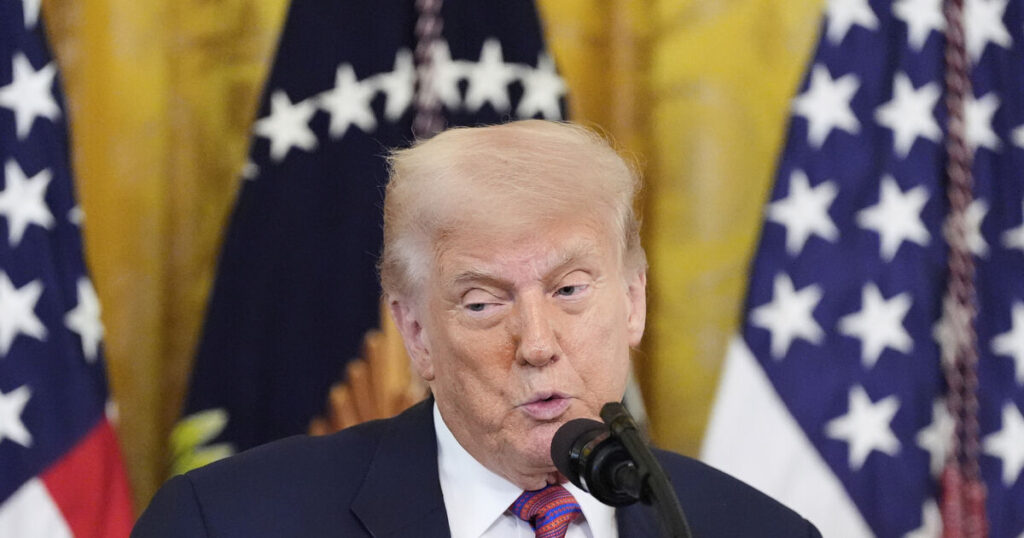Former President Donald Trump has filed a lawsuit against The Wall Street Journal and its owner, Rupert Murdoch, following the publication of an article detailing alleged connections to convicted sex offender Jeffrey Epstein.
The lawsuit, filed in a Miami federal court on Friday, seeks damages of at least $10 billion (£7.4 billion).
The lawsuit was triggered by a report in The Wall Street Journal describing a sexually suggestive letter allegedly bearing Mr. Trump’s name, which was reportedly included in a 2003 birthday album for Epstein’s 50th birthday.
Mr. Trump has denied writing the letter, labeling the Journal’s reporting as “false, malicious, and defamatory”.
The letter was reportedly collected by disgraced British socialite Ghislaine Maxwell as part of Epstein’s 50th birthday album, years before Epstein’s 2006 arrest and subsequent falling out with Mr. Trump.
According to the newspaper, the letter attributed to Mr. Trump includes text framed by a drawing of what appears to be a naked woman and concludes with, “Happy Birthday — and may every day be another wonderful secret.”
The Wall Street Journal described the contents of the letter but did not publish a photograph of the entire document or reveal how they obtained the information.
This lawsuit comes after the U.S. Justice Department, under Mr. Trump’s direction, requested a federal court to unseal grand jury transcripts in the Epstein case, amidst scrutiny over the administration’s handling of related records.
Deputy Attorney General Todd Blanche filed motions to unseal the Epstein transcripts, along with those connected to the case against Maxwell, who was convicted of recruiting teenage girls for Epstein to sexually abuse.
Epstein died by suicide in 2019 while in custody awaiting trial.
The Justice Department’s earlier announcement that it would limit the release of further Epstein files had angered segments of Mr. Trump’s support base, particularly after administration officials had promoted the expected disclosure and fueled conspiracy theories surrounding Epstein.
In court filings, the Justice Department stated it will collaborate with New York prosecutors to appropriately redact victim-related information and other personally identifying details before releasing the transcripts.
“Transparency in this process will not be at the expense of our obligation under the law to protect victims,” wrote Mr. Blanche.
However, despite the renewed effort to release grand jury transcripts, there have been no announcements to reverse course and release other evidence held by the administration.
Former Attorney General Pam Bondi had previously raised expectations for the release of further materials after the initial Epstein files disclosure in February, which contained no significant new information, sparked public criticism.
A judge would need to authorize the release of the grand jury transcripts. The process is expected to be lengthy, involving decisions on what information can be made public and redacting sensitive witness and victim details.
These records would contain testimony from witnesses and other evidence presented by the prosecution during the grand jury proceedings, where a panel determines if there is sufficient evidence to bring an indictment, or a formal criminal charge.


